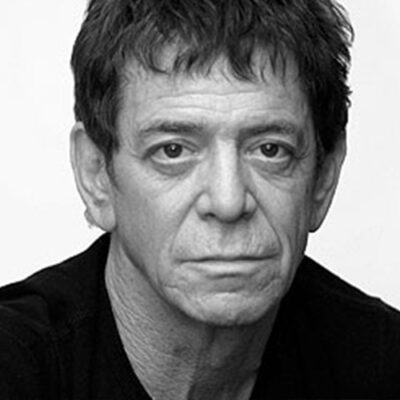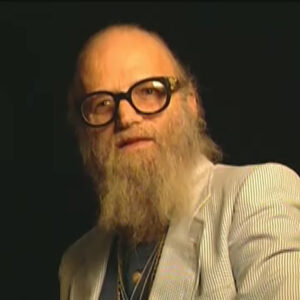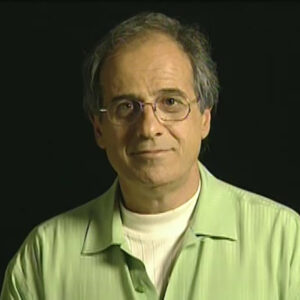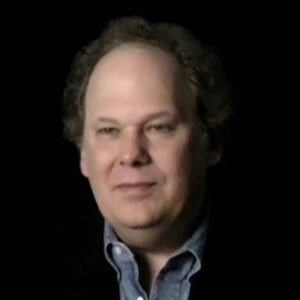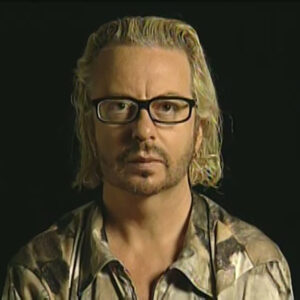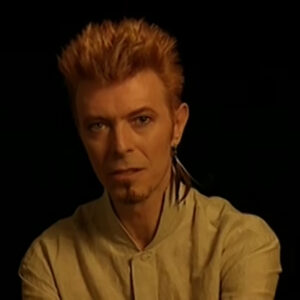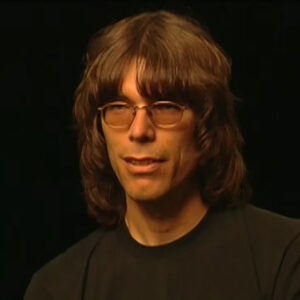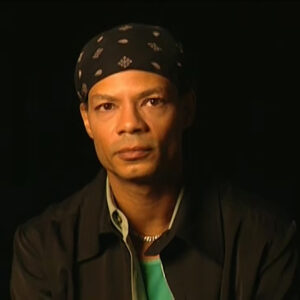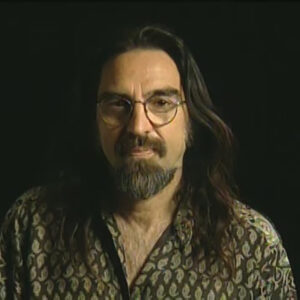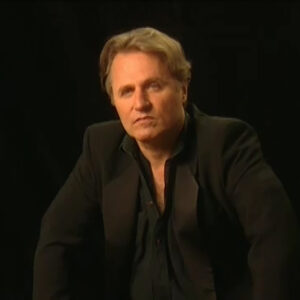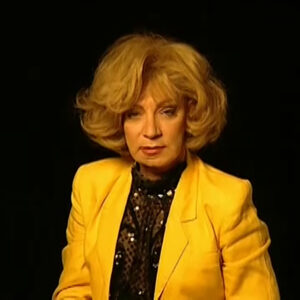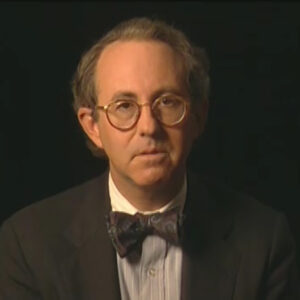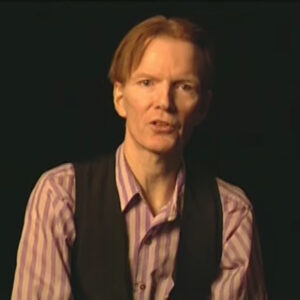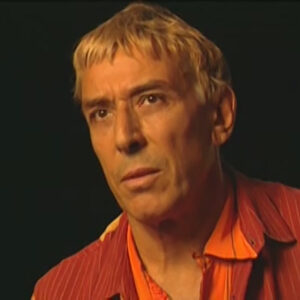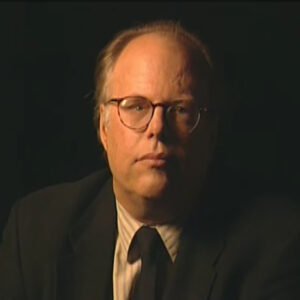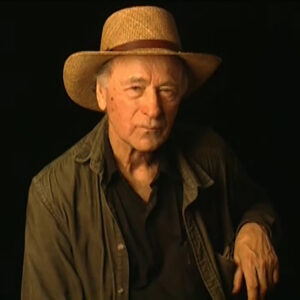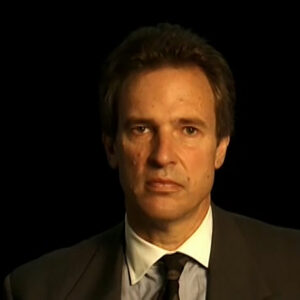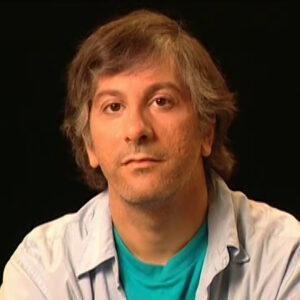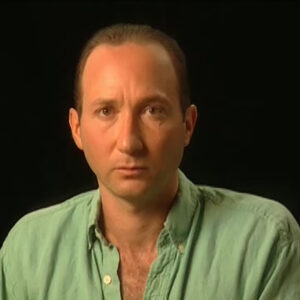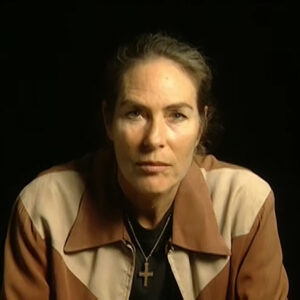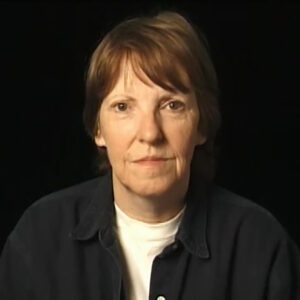Speaker So when I was when I was at Stony Brook, which was from 65 to 69, I was sort of like like this odd music that most of the students didn’t like. They wanted sort of Dave Brubeck and things like that. And they want to wish, you know, ties and things. But I had been elected freshman class president. And then the next year there was sort of right wing backlash and they threw all the left wingers out of office, including myself. I didn’t get re-elected, but the outgoing government appointed me to be chairman of the Student Activities Board, which turned out to be far more of an important position than being the president, the freshman class or of the sophomore class. And one of the things I did was get a radio show out of that, because since I had the budget, they couldn’t keep me from having a show. But they did sort of put me on late at night so I wouldn’t bother people. And I was playing all this music from mostly from the West Coast and from the UK. It was starting to come out like cream, the airplane, the dead country, Joe and the fish, big brother and the holding company. And this was this was the underground music of the day. And people most of the people, most of the students didn’t like it. I was also booking these bands to come and play at the school and the students didn’t want to go, even though they could go for free. We’d have to put ads in The Village Voice and let people know in the city that they could come out to Stoneybrook and see these bands very, very, very, very inexpensively.
Speaker And Jimi Hendrix mother’s mothers joined the store.
Speaker I don’t know how I could possibly relate that to Lou, but actually what happened was I was at the Cafe Gogo in New York and Jimi Hendrix was playing guitar with, I think, John Hammond’s band.
Speaker And I went to see John Hammond, who I had met at a Lou Reed at a Velvet Underground show, as a matter of fact. And I saw Jimi Hendrix. Wow. What a great guitar player. And I went up to him after I said, well, could you come out to my school and play his music, do that all time? We’d find the bands that weren’t as famous and get them to come out for inexpensively. And he said, you know, I just met these guys from the animals and I want to go with them back to England and be in the animals or do something with them. And I said, oh, well, if you ever come back to New York, come on, come out to the school and play. And then, as it turned out, I think the very first show we did back in America after the Jimi Hendrix Experience started that trio in the UK after that started getting going. I think the first show in America was at my school and he did a concert there. And then we had a party at my house afterwards.
Speaker And that was that was the night that that my mother went to smoking a joint with my poor mama.
Speaker She she’s a shosha creates. But anyway.
Speaker So tell me about you can go in the city and see the Velvets playing. Tell me what you hear.
Speaker Yeah. Okay.
Speaker Was the balloon form as it wasn’t called that that was it the. That was the Dom and then it became the balloon form. Was it a balloon form. Then it became the dummy. Can’t remember. There was the balloon from then came the dumb down first.
Speaker Yeah. Right.
Speaker So Andy called it the Dom as well. OK. All right. I think something like 66, 67. One of my friends, Sandy Perlman, was that was who had been really telling me how great Andy Warhol is and saying, you know, you’ve got to come to all of his films. I go and see these films that I couldn’t I didn’t really get. I mean, I wasn’t that artistically sophisticated. You know, I would sit there for hours watching nothing. And but then he said, you’ve got to come. And Andy has a band and they’re great band. Let’s go see them. And I just would do anything to get out of Stoneybrook and get into the city. And he had the card and have a car. So I went with him and. And it was one of the first shows at the DOM on St. Mark’s Place that developers were playing. And I just it was like an epiphany for me musically. I just like was flawed because I had been like really identified myself very, very much with this piece of love kind of music that was coming out of mostly California, San Francisco scene with the airplane, the dad. It was all this, you know, wearing white clothes and stuff in here, all these like guys and like black leather jackets. And it was definitely that wasn’t like the LSD kind of thing. It was more of like a hardcore drug thing around. I don’t know if they were any of them ever used any of it, but that was sort of the vibe around the scene and it just totally turn me on. Now, that’s not to say that I didn’t also like the piece of love that I kept on being a big fan of that kind of music playing on my radio show, begging you to come into my school. But then there was the other like the the yin and the yang. So that other side that made it a whole thing. And that was this very dark music and very different kind of scene and vibe around it. And I used to flip out go into these shows. I don’t think I missed a single show that the Velvets did at the DOM. I went to every one of them I could possibly go to and I went crazy over them and I just went into this love them. And then I would wind up booking the bands that opened for them. We wouldn’t have much money left in the budget. And students weren’t real happy about some of the bands I was booking. I mean, I remember they tried to impeach me because they booked the doors of one hundred dollars. I mean, they would get really uptight about things like that. But I remember I was able to book John Hammond for I think twenty five dollars and Sandy Ball for about the same thing.
Speaker And then.
Speaker Tom was it was Tom Noonan and Tim Buckley and Jackson Browne. I mean, I found all these people at these Velvet Underground just gotten to come out to my school and we would drive them out and, you know, give them some beers. And it is, you know, some money, whatever we could afford to do it. And they play these little shows and most of the students weren’t interested in it anyway, just a small little group of students that were interested. But that was that was even bigger than the amount of students who were into the Velvet Underground, which people were really afraid of it did want to know anything about.
Speaker Did you ever talk to them at that point? I don’t remember. I live I’ve gone through this with a lot of times, but I don’t know and talk a little bit more about the songs they were playing.
Speaker What was the deal with some of these? What was sort of the set?
Speaker Well, basically, it was the set was the songs from the the album with a banana on it. That was what I thought they were playing and they would play them long, long. Some of them. And you know, for me, like a song like like heroin would be the highlight of the night. I mean, that would come on. And that was long on the album, but that was really low in the live shows. As I recall it. And it was just magical. It was nothing like what anybody else was doing, you know, especially I had been raised listening to people doing pop songs and everything was just right and all tidied up. And this was just seemed like so adventurous and out there. And these people seemed to be, you know, off on some crazy tangent, just playing something that it just seemed to be coming straight from some kind of inspiration and maybe from above and going out to the audience. And the audience got so involved in it that there was this this thing that was so special and different from just going to a concert and watching a show. You you just seemed to be right. Part of the whole thing that was happening was most exciting music I’d ever seen in my life.
Speaker And this is after this plane was inevitable, this is not a light show. This is basically the velvet’s on stage.
Speaker This was the exploding plastic inevitable.
Speaker What I’m talking about was so I mean, what was that? That was films on them slide.
Speaker Yeah. And me being on drugs and hardly being able to remember your words, OK. Well, you know, this this was a time when the light shows were starting to become really important. And I guess the first I knew of it was when bands like The Byrds and the Airplane came and played at my school and they had these light shows and sort of trays with liquid stuff. And so I was getting used to this stuff. And then I go to the exploding plastic inevitable. And they had all these Andy Warhol films playing. And then the band was on stage and everything was dark and you couldn’t see who was doing what. It was all kind of weird. And they had these crazy light light shows, but it just seemed again. It wasn’t like these people love light shows. Was this this kind of much darker kind of feel to it. And it was so it was just like it was like taken to the extreme of what people said about the Beatles and the Rolling Stones, that the Beatles were these goody goody kind of kids and the Rolling Stones to these dark, bad boys and had to do with revolution. And that was what I kind of had that same feeling about the Velvets. They were even better. They were way better than the Rolling Stones.
Speaker That’s right. I was like, maybe you could say, Brian. Yeah. I kept thinking about, you know, what you think is this bad?
Speaker You know, I mean, it’s it’s almost a cliche and the rock and roll business now, I think Brian Eno was the first one to say it. But it’s been repeated so many times. There weren’t that many people that bought the first Velvet Underground album. One of the most influential albums of all time, certainly. But not many people bought. It just happens that every single person who bought it started a band. Now, obviously, that’s an exaggeration, but that gives you an idea how important that record became for musicians that went on to become the biggest musicians in the world. I mean, people will acknowledge that. Like, you know, a musician like Arianna and Ben, a band like RDM, will say, you know, where they’ve reached to so many millions, millions of people around the world, certainly more people than the Velvet Underground. They’ll be the first to say that they were profoundly influenced by the Velvet Underground music.
Speaker And can you talk about some others you think they were ah, let’s see.
Speaker I mean, I’m sure there are so many, but I have all of them, everybody.
Speaker So let’s let’s move ahead then to maybe lose.
Speaker Positioned in the record industry. Where do you how do you how do you how who is living where and where does he fit? Today, today, from maybe starting back then and then talk about today. It’s a solo career that spanned 25 years old. Brian.
Speaker All right, let me get my fourth straight about what I’m going to say. I’m not I’m not that familiar. I mean, I’m I’m with the music, but I’m not that familiar with Lou’s career after the Velvet until he came to. So, I mean, I know the music from it, but I went through 12 years.
Speaker What I saw was New York with the New York. So let’s let’s talk about that. OK, let’s talk about the New York album. And he says the album before it was mistrial was just nineteen eighty six, eighty five. And then there was a gap of several years where he was doing kind of concert things and different things. And then all of a sudden outcomes this.
Speaker Unbelievable. Yeah.
Speaker When I first started at Sire Records, Seymour Stein, I thought was the greatest and our man alive. I mean, certainly in terms of the kind of music that I like. He was the greatest day in our man alive. I mean, you know, you could say that maybe Clive Davis, you know, sines great things, too, and he does. But that’s more kind of in a pop world where Seymour was signing things that I felt were more adventurous. Maybe people would say, Culter, you like the Ramones and the talking heads and stuff like that. But I was my kind of music, so I was having you working to see more. And one of the things after I got to say that he saw that I just like flipped over was Lou Reed. I couldn’t believe he saw, like, this guy who is like one of my musical heroes, someone who, like, I like those the greatest in the world. And Lou, it had a funny career. He would do he would do a record that would be massive. And then he would like sort of so it would go up and then his career would go down again for a few records because he would do something other kind of thing and maybe experiment a little bit and be a little bit ahead of the curve. And then he would do something else that, like connected with the public and it would just go like that all the time. And I was lucky enough with the first album that he did on Scio, the New York album to be there for the big, huge one like that. In fact, a few weeks ago when I saw Lou play at the Supper Club in New York, I’d say the song that got the biggest response of the entire night bar any other song he did from any point his career was Dirty Boulevard from the New York album, because that was Priva last hit that those people had heard on the radio and they responded massively to it. Plus, he did a very good version of it that night. But that was dirty. But I was a big radio hit for us. I mean, just just took off on radio and people loved it. I mean, that’s the main thing. You know, radio play, anything. It’s just trying to sell advertising. You know, whatever they’re gonna sell, they’re trying to sell. And how do you do that? You do it by playing music that people like and, you know, they gave it. You know, Lou Reed, big famous name. Let’s give it a try this out. The song sounds good and they put Dirty Boulevard on and it was instantaneous reaction record. People were calling in saying, wow, play that record. We like that record. Even people who didn’t know who Lou Reed was, it wasn’t because it was Lou Reed that people liked it. It was because of the song. It connected with people. Sounds good. And it wound up being a hit for us. We saw a lot of records for Lou. I think World War II was considerably over a million.
Speaker You can talk about censorship. How do artists censor themselves, in a sense, knowing that it’s not going to get airplay? It seems there’s no right.
Speaker Censorship is a phony issue. I mean, it’s easy to say, well, the government does censorship and that’s censorship is. But then, you know, people do self-censorship. Also, Lou, isn’t one of those people you read. You go through the songs of his career and you see he doesn’t censor what he does or he’ll say anything he wants to say. Whether it gets widely distributed or not is another question. You know what? I’m really happy that I work at a record company where we support what he does and we feel great about what he does. And we want to put it out and get it out to as many people as we can. But sometimes it’s very, very difficult. Radio stations aren’t saying, well, the government might be angry if I, you know, play the song that makes fun of Newt Gingrich. They don’t say that. What they do say is my listeners are going to want to hear this or they’re going to want to hear Hanssen. Hanssen is easy, very, very easy. It’s the lowest common denominator. Lou Reed isn’t the lowest common denominator. He’s very, very difficult. His lyrics are difficult. His music is difficult now. I always think that when you put a lot into something, you get a lot more out of it. I mean, you know, it’s what you know, you could write a novel that, you know, on a plane, you read the whole thing through the plane and you don’t get much out of it. You don’t think about it for the rest of your life. You could read or, you know, James Joyce and they’ll stay with you for the rest your life. It was hard to do, but was worth it. And Lou Reed’s music is like that. It might not be the easiest thing, but it’s worth it. It’s you get something out of it, something real.
Speaker That was beautiful. Thank you. Great. Any notes for me? Yes.
Speaker I came from similar roots. What were the records in dad’s influence? When I say similar, you know, we end Long Island.
Speaker I mean, we both I mean, we both went to Brooklyn, grew up alone and start over and say that, OK, I was born in Brooklyn. I think Lou was born in Brooklyn. I my family moved to Long Island when I was a kid. We lived just a few miles from each other. I didn’t know him. No island. I think he lived in Freeport. I lived a couple of towns over in Roosevelt and then Valley in Valley Stream, then Roosevelt. And I can’t do much. Sure. I mean, I think musically, I was dead to music when I was a kid. I hated it. My sisters were into music. They were dumb. I was smart. I thought that anything that they liked was like totally bad. You know, classical music was probably good, but I wasn’t really into that. They like the Supremes. I can remember like taking their records, using them as Frisbees and tossing them off the porch. And it wasn’t until really until the Rolling Stones first record that I really started getting into music and thought, wow, this stuff is really great. I mean, a little bit with Bob Dylan before that. But even that was a little hard for me. I saying, wow, this is tough stuff. Do I really understand this? And then the Rolling Stones rock really got me. That’s what that’s what got me into music. And then I went backwards from there to find other stuff.
Speaker One of the things I think that’s so interesting about his work is that he he has addressed issues long before anyone else has sexuality, gays, drugs, I mean, all these sort of things that nobody would touch when he was touching them. I feel that way.
Speaker Idato. Can you talk about that? Yeah.
Speaker OK. Well, I was when I was a kid, knew I was growing up, there was no like you didn’t know about drug use. I mean, white middle class people didn’t even know about it. Like now, you know, any kid who’s six, seven or 10, they know about drug use. It’s been on the cover of Time magazine. It’s been on TV. But when I was growing up, we didn’t know anything about that. No one did anything about it. And if it was mentioned in the song, it was very, very obscure. And and, you know, did it really mean that? Is that what. Is that what that meant? Lucy in the Sky with Diamonds, which you became later. What does that mean? And it was it was never right out there in Blaydon. In fact, when the first time I ever smoke pot, it was when I had I’d hitch to California. I met some beatniks that we had been taught in school that if you use pot, you will die because pot was the same as heroin and you don’t use heroin, so you don’t use pot. So these beatniks picked me up in their van. They were all smoking away and they were the happiest people I ever met. And then they weren’t dying. So I tried it. And then I didn’t die. And I was really like and I was 15 years old. And I when I got back to my high school the next September, I was looking for people ways to find this marijuana. And no one had any. No one knew about it. Then I remembered Yabut and hygiene. They said it was the same as heroin and that I was able to find. So I became a 15 year old heroin user, which was a traumatic experience. And no, there was nothing in it, nothing about it in the media at all. It was just like you die. I was there. It’s the worst thing. You’re a horrible person if you do it. It was just negative, negative, negative. And it took years before I started. I probably, for me, the first the first mention that I ever related to in the media. Of drugs. It was Lou Reed song. It was the velvet song Heroin, which was a song that really touched me and a song that I really loved, who was many years later. But it was real important to me. I mean, Lewis hasn’t shied away from talking about issues before. Other people were willing to he didn’t have a problem with those issues. And many of those issues were my own personal issues and things that I that I benefited from. So that’s why Lou Lou’s songs have always been very, very important to me. Why, Lou is I think of Lou as one of the most important artists in America. I think he cringes when he hears that word use excuse name. But certainly for me, that’s what it always has been. Still is.
Speaker What is a man in the 70s?
Speaker Oh, you weren’t as much in touch with his career during the 70s. Surely when other bands solo career?
Speaker Well, this is what was the reason I was levitation, what was thought I was doing?
Speaker I was in Nepal and Afghanistan and, you know, I really was out of it.
Speaker I mean, let’s talk about unfancy. You came back from Afghanistan. Then again, it feels okay, you know?
Speaker Right. You know, there was this music of the 60s that I so totally believed in. Whether we’re talking about Cream and Hendrix or the airplane and the dead or the Velvets, I mean that to me that was so important and it was so tied up with lifestyle and so tied up with politics, civil rights, politics, anti-war politics. That was so, such an important thing to me.
Speaker And then suddenly out of this, it comes, well, first Led Zeppelin to like bring it to everybody, sort of. It wasn’t a cult little thing anymore. Just exploded onto the national stage, the international stage. And then that just developed into this this horrible corporate rock. I mean, the Zeppelin still kind of referred back to the great music, but everything that came after the Zeppelin never referred to anything except Led Zeppelin. They just that was it. And the whole 70s, from my perspective, of course, there were great things that happened. Also like television, Patti Smith and Lou Reed were still making records, but in the Stooges were there. But the most of what was popular was all this, like really godawful corporate rock like Journey and Styx and all REO Speedwagon, all this like just stuff that seems to me if you were just doing that because they had to pay the rent or something, didn’t seem like inspired kind of music, didn’t seem important in any way. I guess you could boogie to it. And that’s important. People could enjoy it on that level. Foreigners abuses, terrible stuff. And I just was not into any of that kind of stuff. And then when I went away and and avoided six or seven years of war in Vietnam and spent a lot of time in Afghanistan, Nepal and India, time, a lot of time in Europe. And when I came back to America, the guy who I had spent a lot of, like Dore’s time with Danny Fields, who worked for Electra when I was working the door to come play at my school, I ran into Danny, said, Come, come and see this new band. I found this new band is so great. It’s I’m like, this is like, you know, I’m a mature person now. I have the rock n roll for children. And he said, Oh, you’re so raw, you outcomes. And he wouldn’t leave me alone. It’s got to see this band. You got to see this band. And I went with him to this little club I had never heard of called CBG Jeebies. And it was the Ramones was one of their first shows at CBG bars. And it was just changed my life again. And boom, I was like right back into into the music again. I thought, wow. It’s like you don’t have to practice a guitar for ten years and compete with Jeff back to get up on stage. You can just be there and just pour your guts out. And I just loved it and I got right into it again.
Speaker Now, you could talk to me about how it’s seen as a God movement, right?
Speaker OK. So from the early days of punk with bands like Television and Richard Hell and and of course, the Ramones and the Dictators and Blondie and all these wonderful bands, it was sort of coming up in New York that then influenced the scene in London with bands like The Clash and The Pistols and the Damned and the Buzzcocks, all these bands. One of the things that we all had in common is that they really acknowledged the importance of the Velvet Underground as a band. And Lou Reed is a songwriter and they all understood that that’s where they were coming from and how important that was to what they were doing.
Speaker Like you say, that was perfect. But just go a little bit more it you can about maybe how you felt about that or whether.
Speaker I’m sure he hated every minute of it. I mean, unless they unless they unless they cover his song. No. Okay. So, I mean, a lot of the a lot of the English bands and the and the American bands were were were trying to be outrageous. Were trying to be. And they were outrageous. And they were rebels and they were talking about dark things and they were talking about things that the society would rather have swept under the rug. And, you know, that was what Lou Reed. That was what Lou Reed was famous for. And he almost gave permission to bands like The Damned and the Sex Pistols to be brats. And I mean bands these bands were like considered outrageous by the media, like, oh, it’s so outrageous. But what were they doing? Was they kind of second hand Velvet Underground is what they were doing.
Speaker So then placed me in the context that 70, 75, 76 every 778. So tell me what else was mainstream at that time? And was it the journey and all that kind of stuff? Yeah.
Speaker Well, it was whatever it was while I was avoiding war at all.
Speaker I mean, I was going to say, well, it was the punk scene and describe what else was out there.
Speaker OK. So by 77, the punk scene was like really starting to brew. I was a disc jockey, a case in which was the big kind of rock station in San Francisco at the time. And all I wanted to do was play things like the Ramones and the Sex Pistols and The Clash. That’s all I want to do on the radio was play the stuff and the brand new singles that would come out. I wanted to get it right on the radio. And I remember one day getting a note from the program director saying our REO Speedwagon is the biggest band in the country. You’re not playing them if you don’t come up with a way to play them. I’m going to have to do that for you. And to me, that was like I never wanted to be on the radio again. After that, I thought it was, like, so horrible. I mean, the idea of me being on the radio was so that I would give people a break from that kind of horrible stuff and give them stuff. That was what I thought was like awesome and great and inspired and meaningful.
Speaker Beautifully said.
Speaker I think we’re heading out what to say how? No, not at all. Oh, yeah.
Speaker Yeah. Do you have anything to say about vending machine music?
Speaker No, but I remember it, but I ate that passed me by. Yeah.
Speaker Do you remember hearing anything about the. That was a big story.
Speaker Oh, no. Oh, I know. I have people. I have people to this day. I mean, just this week, a kid said to me on the Internet, why can’t you get him to do another metal machine music? I. Leave me alone. No, I mean, that’s you know, I think that that’s just what it was, was Lou trying to fulfill its contractual obligations.
Speaker Before we cut, which you just said is actually very interesting to me, because I know you’re interested in computers and the Internet. And you talk to me about what is out there about Lou. I mean, how is there stuff that comes to you that that relates to Lou in any way that that particular comment? But.
Speaker What’s and what’s what’s out there.
Speaker I think I probably make myself as available as any record company president on the Internet. I mean, people can find me very, very easily fiz to t w o at AOL dot com. And people find me all the time. I mean, I think the only other company president that does that is Danny Goldberg at Mercury.
Speaker And therefore people will constantly be sending me mail, asking me email, asking me about the artists who they know I’m associated with. So I get mail about Lou Reed all the time. Lou Reed is very, very, very popular Internet figure. There are Web sites about him and the Velvet Underground. There are discussions going on all the time. He is one of the rock and roll people that’s all over the Internet all the time. And in all countries. In all languages.
Speaker And tell me why you think that is.
Speaker I think they’re probably the reason for that is because his music has been so relevant to so many people and so many people have connected to what Lou Reed has to say, that it’s not just sort of, you know, so much pop music. It’s almost like a tissue. You need a tissue to blow your nose or you’re going to have a stuffy nose. So it’s important, but after you’re done with it, you throw it away. Well, that isn’t Lurie’s music. He doesn’t provide that function. Here’s another function, which is far more meaningful, far more important. And it might sound pompous to call somebody important was doing rock music, but that is exactly what he is. His music goes to people’s souls, to their hearts and to their very being.
Speaker I have one other question, which is, as the record industry person, can you talk about 50 years of rock n roll right now?
Speaker Where do you see yourself as someone so a career of 25 years, where do you see rock and roll going? And also the people other than that are going to continue this career. There was such vibrancy.
Speaker Well, I mean, when I think about when I think about the people who were important to me when I was in college and what they’re doing today, I can’t really think of anyone else who isn’t as important to me as Lou Reed is today. I mean, Bob Dylan was massively important to me back then. I don’t listen to his music now. Maybe I shouldn’t, I guess, on the out of it. But I don’t I don’t listen to what Mick Jagger has to say anymore. I don’t listen to what. Certainly not. Listen to what Paul McCartney has to say anymore. Lou Reed still seems to me extremely relevant. And I think he’s the only one from back when in my formative musical years who’s still important to me now.
Speaker That’s what I wanted to hear. Good, two things. One minute of.

